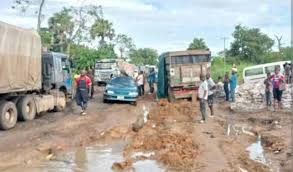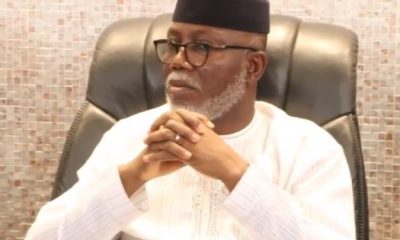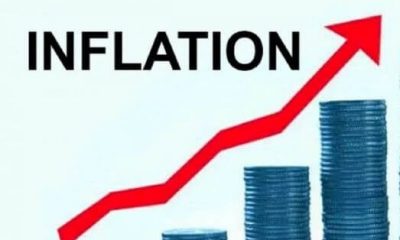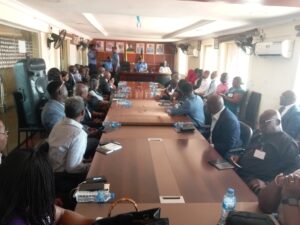NEWS
FG Approves September 16, as National ID Day
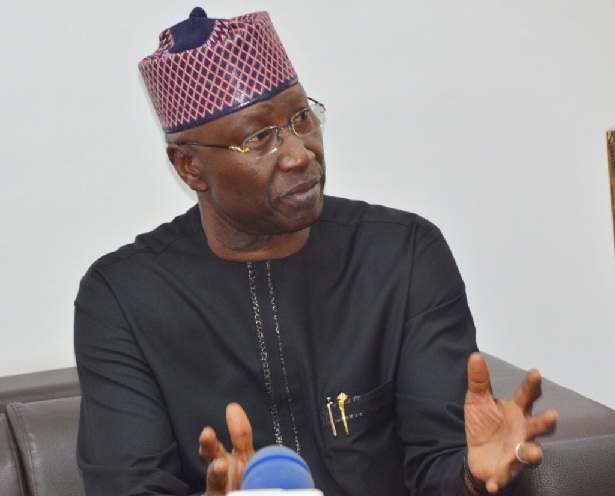
The Federal Government has set aside September 16 every year to be observed henceforth as National Identity Day.
This is a practical move to create awareness on the importance of identification as a modern tool for national development and social cohesion.
The Secretary to the Government of the Federation (SGF), Mr.
Boss Mustapha conveyed the government’s approval in a letter dated August 29, 2019 and addressed to the Director-General of the National Identity Management Commission (NIMC), Engr. Aliyu Aziz.In the letter signed on the SGF’s behalf by David K. Gende, the Director, Planning, Research & Statistics in the Office of the Secretary to the Government of the Federation, Mustapha conveyed government’s approval to the NIMC chief executive officer that henceforth Nigeria “should join the Coalition for International Identity Day,” in response to the latter’s earlier request.
The letter reads in part: “I am to inform you that the SGF has considered and approved (i) that Nigeria should join the Coalition for International Identity Day, which will recognise the role of identity management for proper planning, governance and efficient service delivery;
“ The National Identity Management Commission was also empowered to proceed with educational and awareness campaigns on the proposed identity day to other public and private sector stakeholders including institutions in the movement.”
By that approval therefore, Nigeria becomes the first country in the world to formally adopt September 16, otherwise called 16.9, as Identity Day (ID-Day).
Aziz said in a statement said NIMC has lined up a number of activities to formally launch Nigeria’s Identity Day on September 16, 2019 this year being the debut edition. The programme will take place in Abuja, with stakeholders from public and private sectors attending.
The ID-Day campaign was initiated at the 4th Annual Meeting of the ID4Africa Movement on April 24, 2018, in Abuja, Nigeria, as a global coalition calling for the recognition by the United Nations of September 16 – or 16.9 – as International Identity Day (ID Day) given that identity plays an increasingly important role worldwide in developed as well as developing economies.
NIMC D-G explained that: “The purpose of International Identity Day was to raise awareness about the important role identity plays in empowering individuals to exercise their rights and responsibilities fairly and equitably in a modern society.”
He added: “And we are delighted that Nigeria has become the first country in the world to declare September 16 as ID Day, thereby leading the rest of the world in this important direction.”
He explained that the choice of the date, 16 September, was in recognition of Sustainable Development Goal (SDG) 16.9 which calls for legal identity for all including birth registration by 2030.
The United Nations states that “observances contribute to the achievement of the purposes of the UN Charter and promote awareness of and action on important political, social, cultural, humanitarian or human rights issues.
“They provide a useful means for the promotion of international and national action and stimulate interest in United Nations activities and programmes.”
NEWS
Ondo Disburses N2bn to 19,023 Unemployed Youths, Vulnerable Persons
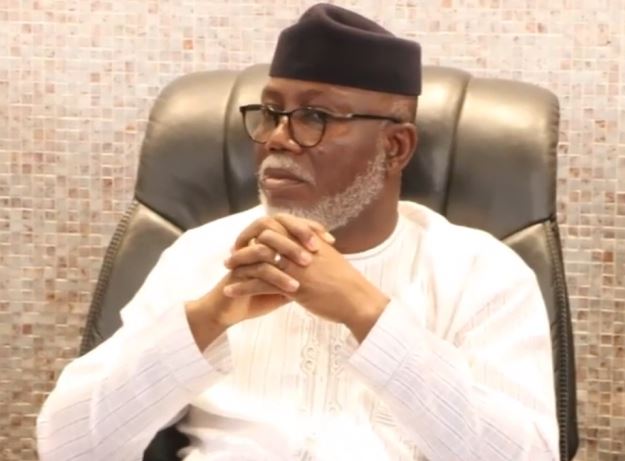
Gov. Lucky Aiyedatiwa of Ondo State says his administration has so far disbursed N2 billion grant to 19,023 beneficiaries, mostly unemployed youths and vulnerable persons in the state.
Aiyedatiwa said that the money was disbursed under the government’s Labour-Intensive Public Works (LIPW) programme.
He said this on Wednesday in Akure during the launch of the orientation and disbursement under the OD-CARES social transfer and LIPW.
He said the essence was to reduce poverty and enhance local economy with further instruction for the enrolment of additional 1,000 beneficiaries to empower more unemployed youths in the state.
According to Aiyedatiwa, the Federal Government has also paid N2 billion to 77,000 persons under the Renewed Hope Agenda.
“The Ondo State Conditional Cash Transfer Unit has assisted over 7,500 persons across the state through the OD-CARES programme.
“Over N2 billion has been disbursed to support the aged and chronically-ill adults with a total of 2,870 beneficiaries receiving bi-monthly stipends of N20,000 each.
“Furthermore, preparations for the enrolment of additional 5,000 new beneficiaries are in top gear.
“Our resolve to transform lives is a continuous exercise.
“We assure you that our administration would work tirelessly to ensure that our most vulnerable citizens receive the support they deserve,” he said.
The governor also said that his administration was committed to the welfare of the poor and vulnerable and every individual that deserved a safety net.
Earlier in an address of welcome, the Senior Special Assistant to the Governor on Social Investment Programme, Mr Felix Alonge, commended the administration for prioritising the needs of young people and vulnerable groups.
“This initiative reflects the government’s commitment to reducing unemployment and fostering social inclusion.
“It is a testament to the governor’s vision of a fair and prosperous state, where every citizen can access the support they need to improve their lives,” Alonge said.
One of the beneficiaries, Mrs Enuiyin Oluwafunmilayo, said she was thankful to the State Government for providing her a lifeline.
“These funds will help me meet my essential needs and ease the financial burden I have been facing,” Oluwafunmilayo said. (NAN)
NEWS
Senate Passes Bill to Establish National Eye Centre, Doma, Nasarawa

The Senate has passed a bill for the establishment of National Eye Centre Doma in Nasarawa state.
This followed the adoption of report of Committee on Health, on the National Eye Centre Doma, Nasarawa State establishment bill 2024 at plenary on Wednesday.
Presenting the report, Chairman of the Committee, Sen.
Banigo Harry (PDP-Rivers), said the bill sought to establish the national eye centre to cater for eye challenges of host communities, other citizens in the area and the neighboring communities.She said the committee in consideration of the bill, adopted due methodology, conducted a public hearing, captured the views and opinions of stakeholders and the general public.
“The bill received an overwhelming support from the stakeholders, as the committee had a clause by clause consideration of the items.
“It is on record that cataract is one of the common causes of severe visual impairment and glaucoma, hence the call for establishment of National Eye Centre for easy access for members of the community.
“The National Eye Centre when fully established in Doma will help to prevent, diagnose and treat eye conditions and coordinate research on eye disease.
“The Centre will also help train specialists, eye care handlers and professionals in eye diseases and related fields,’’ she explained.
She urged the senate to approve recommendations of the committee on the bill.
Sen. Dicket Plang (APC-Plateau), said establishment of more eye centres in Nigeria would provide services to citizens.
He said the Centre would provide access to eye service resulting in improved sight for citizens.
Sen. Victor Umeh (LP-Anambra), said establishment of the Centre would help take care of the eye needs of the people and reduce the influx of eye care seekers to Kano Eye Centre.
He said more eye care institutions should be established across the country, saying that more citizens should have access to eye care to reduce visual impairment. (NAN)
NEWS
Inflation Threatens Access to Diabetes Care for Low-income Nigerians – Stakeholders

Stakeholders in Nigeria’s health sector have raised concerns about the growing impact of inflation on the ability of millions of Nigerians to afford life-saving diabetes care.
The stakeholders said that with inflation tightening its grip on the country’s economy, many people living with diabetes are struggling to afford their medications and essential healthcare services.
They spoke at the 2024 Gatefield Health Summit, themed “Beyond 65,” in Abuja on Wednesday,
At the summit, global health leaders and advocates gathered to discuss the escalating crisis of Non-Communicable Diseases (NCDs), particularly diabetes, in Nigeria and sub-Saharan Africa.
Report says that in the region, NCDs are responsible for 37 per cent of all deaths, accounting for more than one in three deaths.
Dr Garfa Alawode, Co-convener of the Universal Health Coverage (UHC2023) Forum, a United Nations high level meeting, presented a research titled “Impact of Inflation on Affordability and Adherence to Anti-diabetics”.
Alawode’s research highlighted how inflation had severely affected diabetes management, especially for those in the lowest income brackets.
According to the research, the cost of managing diabetes has increased significantly from 2023 to 2024, with the lowest-income earners being hit hardest.
He revealed that the average cost of managing diabetes for individuals in the lowest income quintile had risen by nearly 40 per cent.
While the research said that the average annual income for this group is around N500,000, he said that the cost of diabetes management now stood at N350,000.
“This leaves little room for other essential needs such as food, housing, and transportation.
“Data from the International Diabetes Federation (IDF) and the National Bureau of Statistics (NBS) further illustrates that inflation is disproportionately affecting the most vulnerable populations.
“Even middle-income families are feeling the pressure, often cutting back on other healthcare expenses to afford diabetes care,” he said.
For Mrs Adeola Johnson, a 48-year-old diabetic from Lagos, the rising cost of medication has become unbearable.
“I used to spend N15,000 a month on my medications in 2023. Now, it is nearly N25,000, and I just can not keep up. Some days, I have to skip doses,” Johnson said.
On primary healthcare challenges and solutions, Dr Biobele Davidson of the BudgIt Foundation, and Executive Director of the Policy and Legal Advocacy Centre (PLAC) addressed the broader challenges in Nigeria’s PHC system.
Davidson highlighted the need for better-resourced PHCs that could reduce overcrowding in secondary and tertiary hospitals.
She pointed out that many PHCs were underfunded and understaffed, limiting their effectiveness, particularly in managing chronic conditions like diabetes and hypertension.
She also advocated for using digital platforms to capture patient feedback and improve service delivery, especially in medication access.
She said that strengthening PHCs would relieve pressure on higher-level hospitals and enhance overall health outcomes.
Supply chain expert, Mrs Azuka Okeke, Regional Director of the Africa Resource Centre (ARC), discussed the negative impact of Nigeria’s chaotic supply chains on healthcare delivery.
Okeke highlighted that while policies and frameworks existed their implementation often fell short, particularly in ensuring access to essential medicines at local healthcare facilities.
She recalled her engagement with pharmaceutical companies in 2018, urging them to produce essential medicines, like malaria treatments, that communities relying on PHCs desperately need.
She said that neglecting public health needs would eventually have consequences for all, including the pharmaceutical companies themselves.
The two-day summit concluded with a documentary that captured the daily struggles of Nigerians living with diabetes.
The documentary showcased how some Nigerians spend up to 25 per cent of their income on medication, underscoring the human toll of the disease.
Diabetes management is not only a daily battle for many but also a matter of life and death for others, who lose loved ones to preventable complications.
Former President Olusegun Obasanjo also shared his personal journey with diabetes, stressing the importance of diet and exercise in managing the condition as one ages.
His message resonated with the summit’s goal of raising awareness about diabetes and its management.
The documentary served as a poignant reminder of the significant impact diabetes had on the lives of many Nigerians.(NAN





